I began my “career” in food service at The Old Spaghetti Factory in Hollywood, CA. In the tradition of that company, the restaurant was housed in an old brick warehouse building, with a trolley car in the middle, furnished with antiques—booths made from the headboards and footboards of antique beds, antique tables and chairs, and antique chandeliers, some of which looked like they came from a whorehouse. It was a perfect place for a newbie to start out.
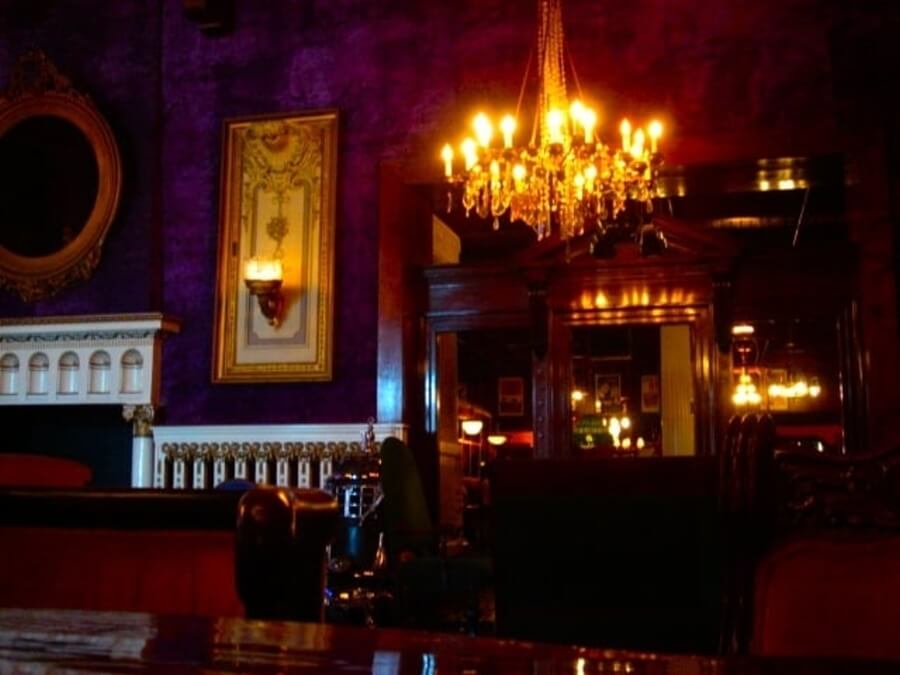
The pace was very fast—at $3-$5 for meals that included a salad, bread, non-alcoholic drink, spaghetti, and spumoni ice cream for dessert, you made money by turnover. I discovered the best money to be made was working the trolley. The tables were all deuces, generally easy to turn quickly. It was good exercise, up and down those stairs all night long.
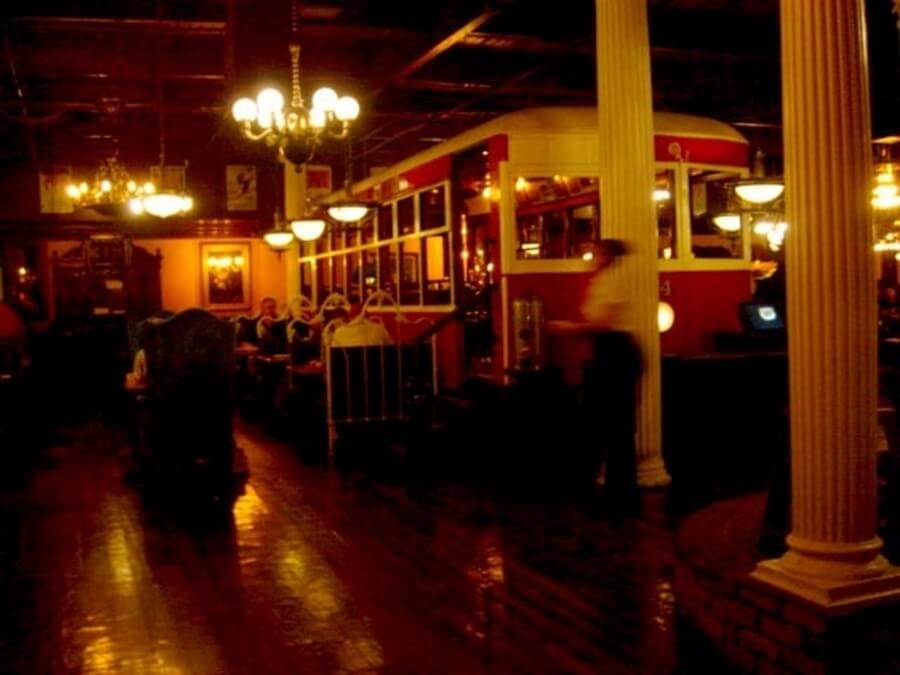
The Spaghetti Factory was also where I learned to use my charm and appeal to both men and women, gay and straight—A skill that served me well throughout my career in the service industry.
There was great comradery among all of us who worked there. We would often walk across the street after the dinner shift to a great little local watering hole to play pool and drink—often with management and back-of-house staff. It wasn’t unusual, after a particularly busy night, for management to open the restaurant’s bar so we could unwind, sometimes even cooking up spaghetti for everyone.
The Old Spaghetti Factory is where I met Randy Deering. Randy came to us from Salt Lake City to be an assistant manager. We hit it off from the get-go—and more than just a friendship. He was older than me, but still a young man, cute, fun, energetic. The sex was good.
I had a penchant for falling in love easily back then, especially if I was having sex with someone. I fell for Randy. Things seemed to be going along well between us…until he told me he’d left a lover behind In Salt Lake. Jon Ross. JR was coming to visit. Randy told him about me. Everything about me.
Jon Ross wanted to meet me. They were taking a day to go to Disneyland and invited me to join them. I wasn’t sure what to make of all of this. From Randy’s description, I knew Jon Ross was a big man, strong, and had a temper. I half expected it to be a charade and I was going to end up being beat to a bloody pulp.
After some awkwardness over the situation initially, we got past the sort of triangle we were in and had a wonderful day at Disneyland—I was to return many years later, not to enjoy the park, but to work there. It was clear they were a couple.
Not long after that first meeting, Jon Ross was preparing to move out of their home in Salt Lake and journey to Los Angeles. He asked if I could come help with the move since Randy couldn’t get away from work as easily as I could. I accepted the invitation. Perhaps a mistake, on all our parts.
I don’t remember how it happened, but Jon Ross and I ended up having sex. We quickly became an item—much to Randy’s chagrin. The age difference was part of it for both of us, I think. He was 13 years older than me. He was an accomplished opera singer with an amazing voice. I appreciated his years of experiences, he appreciated my lack of them. The sex was great. At first.
Randy’s aunt managed an apartment building, just off Wilshire Boulevard, in which we rented an apartment…the three of us. It was not my idea, nor did I particularly like it, but the three of us were friends. If they could manage it, I would give it my best.
It was a beautiful apartment in a beautiful old building. On the very top floor, it had high ceilings and curved archways into the living room and dining room off the main entry hall. The kitchen was not large, but big enough—Jon Ross was a gourmet cook. Jon and I took the master bedroom with the ensuite bathroom, Randy took the second bedroom with a bathroom in a hallway outside the bedroom, between the entry hall.
Jon Ross had worked as a music director for Southern Baptist churches when he was younger. Christian artist, Cynthia Clauson, had been in one of his youth choirs. While classically trained, he was also good at non-classical singing. We started singing together. It was an interesting contrast of voices and styles that worked. We began traveling around singing in churches of various denominations, but primarily Baptist.
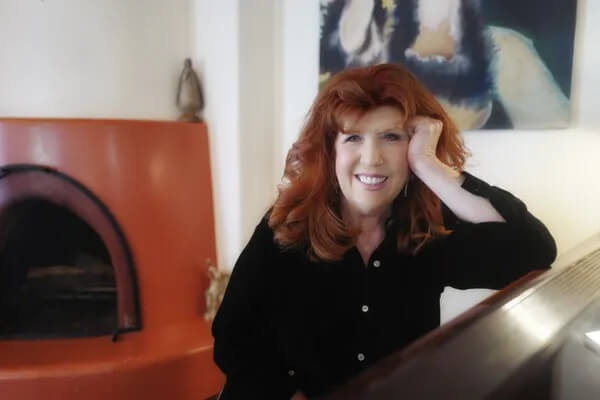
Side note…
We went to Glorietta in New Mexico. It was a Baptist music minister’s retreat. Jon Ross told me to prepare myself. Most of them were married. Many of them were gay. I don’t know if I still considered myself a Christian at that point or not. But I just could not wrap my brain around Christian men having sex with other Christian men. At a fucking minister’s retreat for pete sake! Married men! A whole new world.
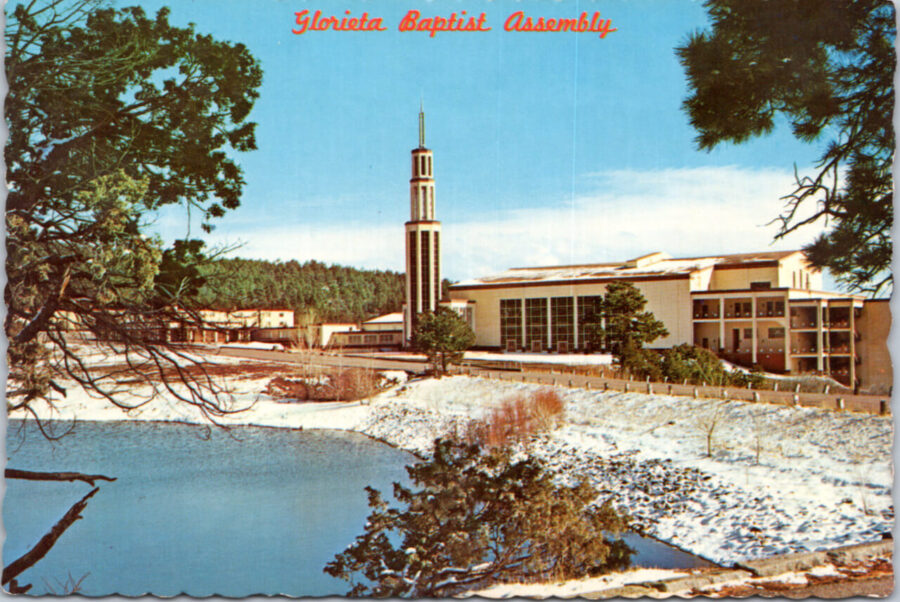
We began to get inquiries from other Christian singers asking how they could do what we were doing. And so, Praise Artist Management was born. Initially we represented Contemporary Christian singers, but then expanded into secular artists as well. When we went through the process of becoming a licensed talent agency, it became P.A.M., Inc.
Our Christian artists included Betty and Bob, a husband and wife team who specialized in youth ministry utilizing their troupe of trained dogs. They traveled around in their motorhome. Betty and Bob were old school evangelizers and very southern. They were very sincere with their ministry, quirky, humorous, and sweet.
Others I don’t recall except for David Funderburg. He was a Denveresque singer, though more of a baritone. From Texas, I think. He stayed with us to take part in a concert we were producing. We were sitting around the living room one afternoon when an earthquake hit. It was a small one, but felt nonetheless. I looked up and David was white as a sheet. You feel earthquakes in your gut.
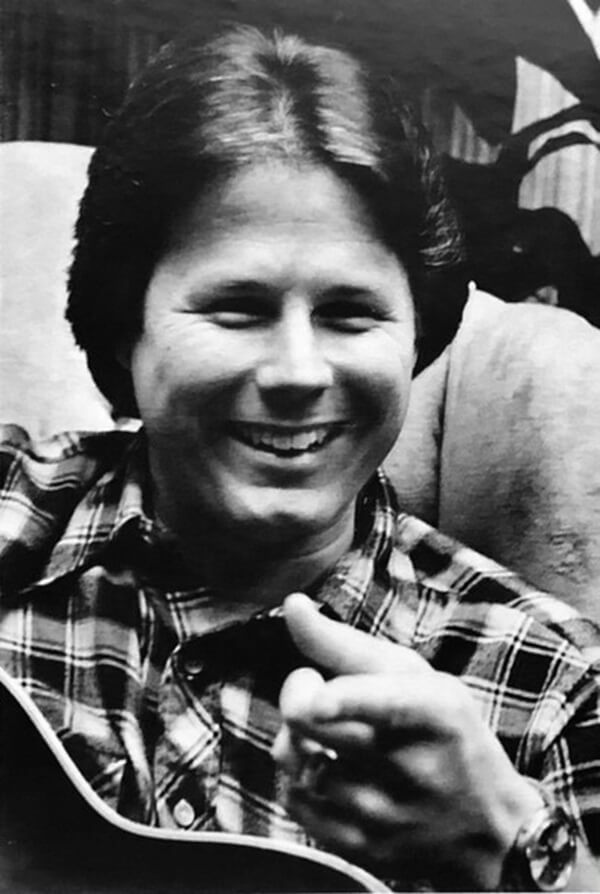
For a while we represented former Miss America (1965), Vonda Kay Van Dyke. She and Jon Ross knew each other somewhere in their past, maybe in his music ministry days. Part of what she did later in life was coaching women in pageants. While working with her, she’d been hired to coach a Miss America contestant. Unfortunately, nude photos of the woman surfaced. Killed that deal.
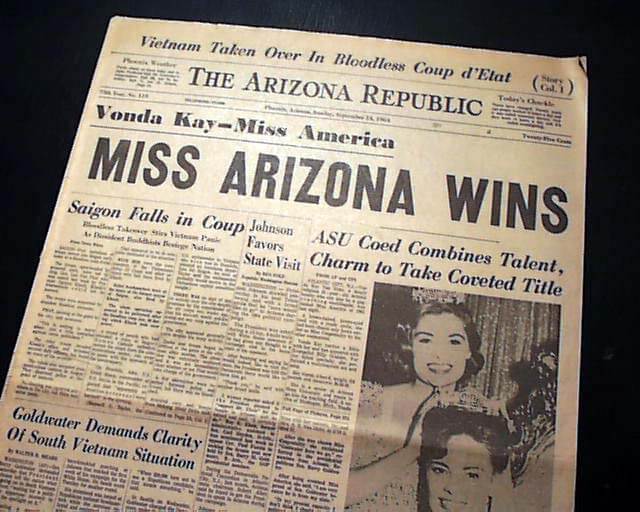
Somehow, we came to the attention of Ron Deutschendorf’s manager—John Denver’s brother. Ron, not the manager. We had two meetings with them in our office over possibly representing Ron. I think I probably knocked us out of the running when I couldn’t contain myself and said something like; “if we come to an agreement, I hope I can get an autograph from your brother.” Yeah.
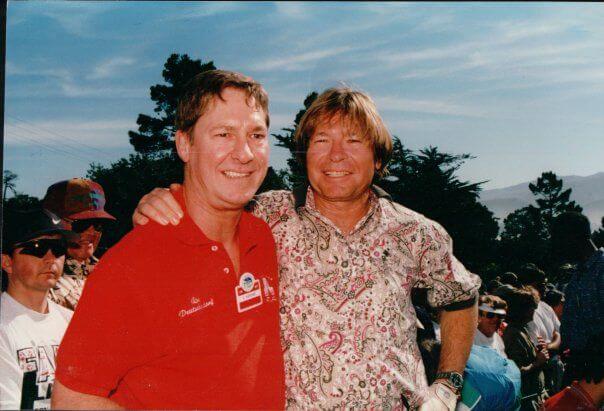
Our offices were in a two-story building that contained a recording studio. Other tenants were in various aspects of show business. Rising Stars managed and agented for kids. They also did workshops for kids and parents wanting to get into the business. We used the recording studio a few times for recording demos for clients. One of those was an opera singer, Harriett something or other—I wish I remembered her name, I’d love to know what happened with her. Someone else Jon Ross had known when she was younger. What an amazing voice she had. I think she was a coloratura. I was mesmerized sitting in the studio listening to her effortless changes from head voice to chest voice. Oh what a chest voice she had!
Two cassette tapes still exist from our time in the studio. One is a demo of Jon Ross and me. I’m not sure what’s on it. I haven’t listened to it in decades. And besides, I don’t have a cassette player. The other is my own “album,” The Lord Has Chosen Me—Side 1: The Lord Has Chosen Me, Reach Out to Jesus, Is it Any Wonder, Softly and Tenderly, Home where I Belong; Side 2 Medley: Sprit of the Living God/The Old Rugged Cross/Amazing Grace, I Surrender All, He Was There All the Time, Give Them All to Jesus, Hallelujah. Only a few of those songs do I remember now. Jon Ross already had his own album, The Shadow of the Cross. We would sell them after the concerts we sang in churches.
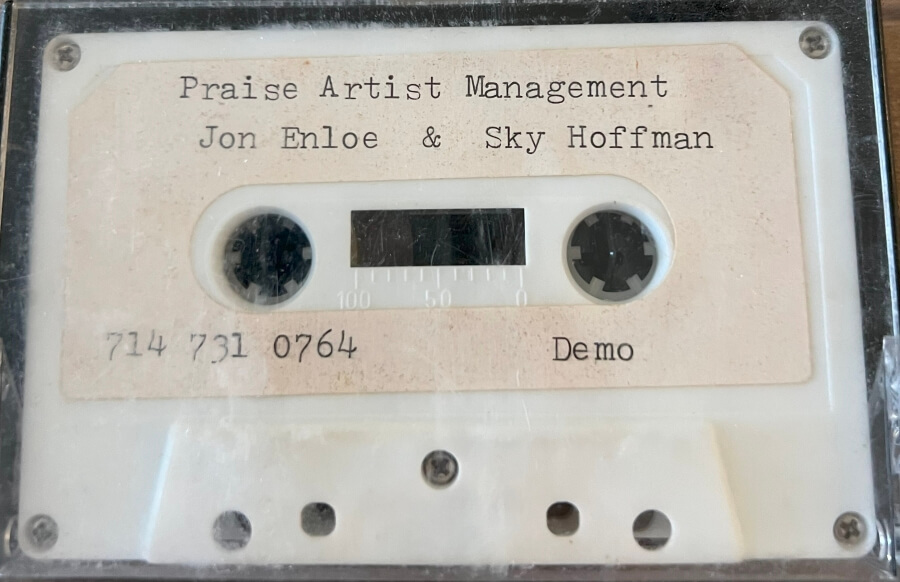
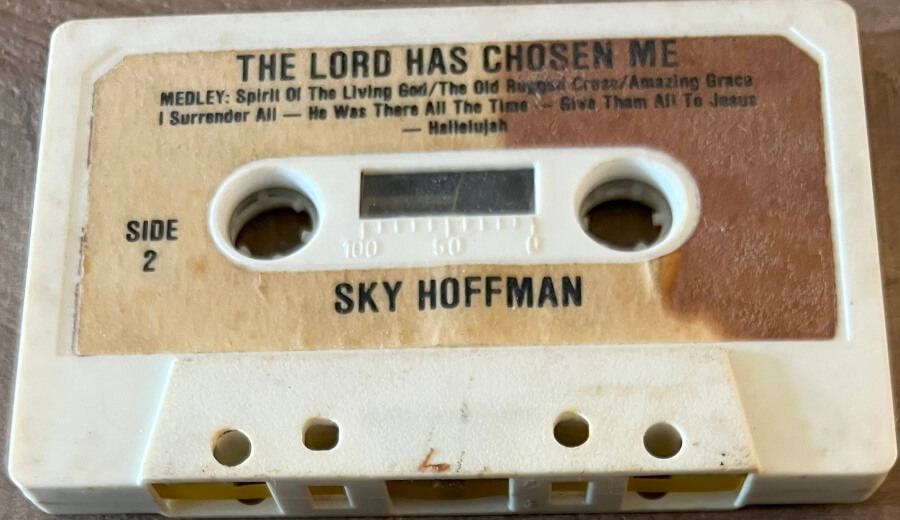
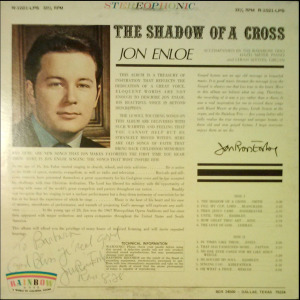
We met and were being considered for representation by Danniebelle Hall. Again, somehow, this came to be. Danniebelle had been a backup singer for Andraé Crouch and the Disciples. She was planning a tour to South Africa, I think it was, and invited us to a big fundraising, sendoff concert she was doing in San Jose, CA. Andraé was on the list of performers. We went to her hotel room earlier in the day. Standing at the door, there was the distinct odor of marijuana. A whole new world.
The concert that night was nothing short of absolute amazing. I don’t recall the size of the hall, but it was packed to SRO. We were two of the very few white faces in the audience. If you’ve ever been to a black church or a authentic gospel concert, you may have an inkling of the energy and spirt we experienced that night. I’d never experienced anything like it before. The closest thing I can compare it to today is attending a concert by The Total Experience Gospel Choir here in Seattle, only on steroids.
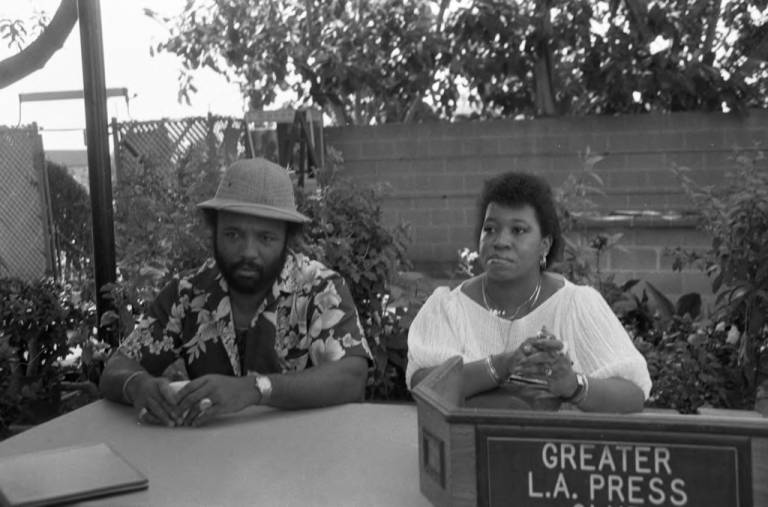
Though she was already a Christian music star by the time we had our agency, Cynthia Clauson invited us to be her guests at a Christian Day at Disneyland. I knew and liked her music before we met, but actually meeting and spending time with her, I couldn’t help but like her more. She was sweet and kind. And accepting. What a marvelous singer and spirit.
At some point, we decided to produce a Christian music concert to feature our artists. We contracted with the Pasadena Civic Auditorium for the venue. We sought a big name—in Christian music, anyway—to headline. We decided on The Archers, a trio of two brothers and a sister. Once we saw their contract, I wasn’t so sure we’d made the right decision. Their riders really surprised me. They required that a specific brand of sparkling water be in their dressing room, that a particular snack/food be available, etc. Wasn’t something I expected from a Christian group. How naïve I was.
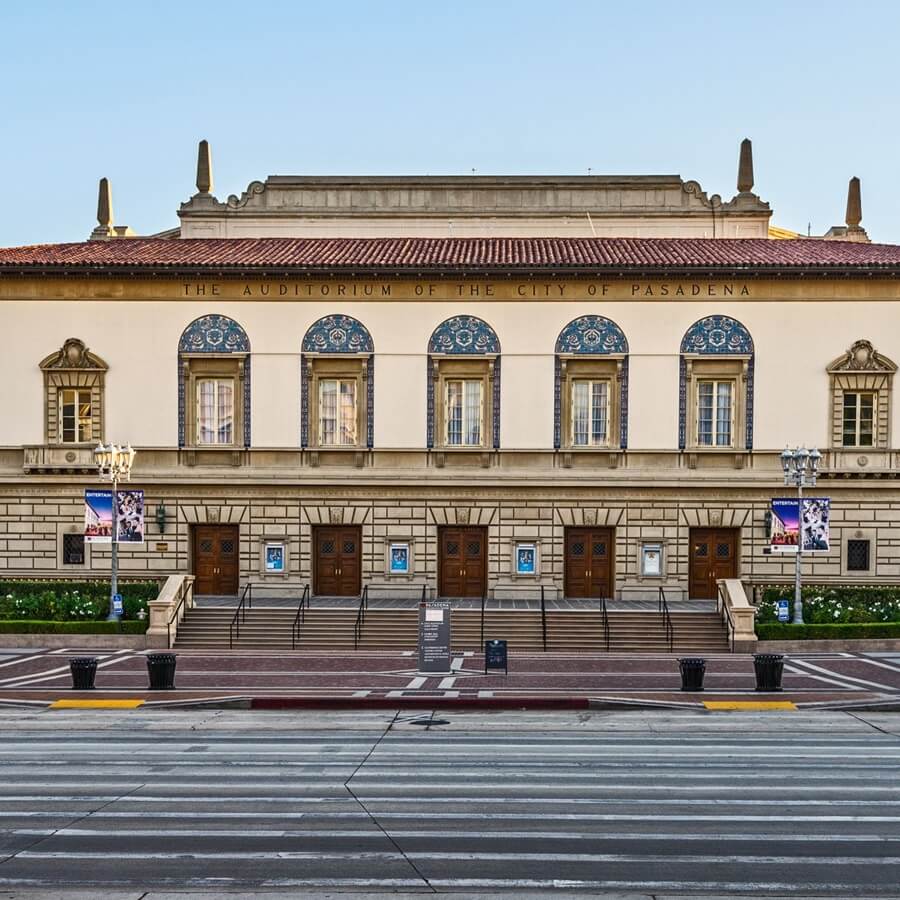
We did everything we could to promote the Night of Praise—we were still known as Praise Artist Management. We put out radio and print ads, and contacted as many nearby churches of every denomination. Two or three weeks before the show, tickets were hardly selling. We had to make the decision to cancel the concert and eat our losses. We’d already arranged travel and housing for our artists and had booked them into nearby churches for concerts on Sunday. We went through with those. After that was all over, it was several days before I could get out of bed. I was devastated by our failure. I didn’t know what depression was then, but that was definitely it.
We discovered a young Hispanic power ballad singer, Stevie Real. His parents came to us through Rising Stars, looking for representation. They had a video of him singing for some beauty pageant—In San Antonio, I think. He was nine years old, flying on a halfmoon several feet above the stage, wearing a Pagliacci costume, singing Send in the Clowns. We were amazed by his performance and signed him immediately.
Star Search was the big vocal competition show on TV at the time. They were also doing a Junior Star Search show. We got Stevie an audition, which resulted in a spot on the show. I was his guardian for the purposes of any appearances—neither his mother nor father wanted that responsibility and trusted us to look out for his best interests. In their offices prior to the show, I met a young Rosie O’Donnell, who’d appeared on Star Search. I was backstage for the taping, met some of the other young performers, one of whom was accompanied by Tiffany, who had appeared on the show previously. Stevie didn’t make it through, but his performance did help us get him a spot on the Merv Griffin Show. Ironic, that.
Somehow we had a connection to celebrity vocal coach, Seth Riggs. Seth coached Prince, Michael Jackson, Stevie Wonder, Ray Charles, Madonna, Johnny Hallyday, Bette Midler, Julio Iglesias and Barbra Streisand. Jon Ross set up a meeting to introduce Stevie to Seth. The day Stevie sang for Seth he was in top form. Seth immediately called one of his friends in the industry and had him listen in as Stevie sang over the phone. Seth offered to coach him for free. It never went any further than that, that I recall. I don’t know why.
Jon Ross was known to the Mormon Church in Salt Lake, connections made while living there and due to his operatic reputation and performing there. They hired him to stage a concert version of The Marriage of Figaro. I was to go along…as his assistant—I seemed to play that role a number of times in my life. The concert was to take place in the Temple not the Tabernacle, both on Temple Square.
During rehearsals, I had plenty of free time. I discovered that there were tunnels underneath the Temple that lead to rooms under the Tabernacle. And, that it was possible to pass from one to the other undetected. One of my things as a horny young man was jerking off in odd, different, memorable kinds of places. I marked my territory in bathrooms under both sacred buildings.
Jon Ross scored an audition with City Opera. Beverly Sills was the opera company’s director at the time. We were going to be in the city for a week. I had never been in New York City. I had never been to an opera before. Knew nothing about them, really. We saw three that week. My very first opera in New York City, was Wagner’s Das Riengold, the first of the four opera Ring Cycle. It is very heavy, lugubrious musically. I barely noticed. I was so captivated by the production itself I couldn’t have cared less about the singing and music. The costuming, the sets, the lighting, all of it blew me away. We also saw Die Fledermaus. Light, fun, enjoyable, with just as much in the production department. The third opera we saw was, I believe, The Merry Widow—which I don’t remember much about. I thought it might have been La Boehme, but I know I would have remembered that one.
The only other thing I remember about my first trip to New York City is going to the top of the Statue of Liberty. I credit that climb and standing in the crown looking out—which you could still do then—as the beginning of my fall into fear of heights…no pun intended. I still shudder when I remember the swaying.
Jon Ross told me he’d won the Met Auditions when he was in his 20’s. He did some productions, though he never said which ones, but his career never advanced. He admitted that he was not easy to work with, that he was too much of a prima donna before he had earned the right. That, I could believe. Researching the Auditions, I find no record of him ever winning.
I don’t recall why we left Los Angeles and moved to Orange County. There might have been a falling out with Randy’s aunt. A car we were taking care of for a friend—who was in a Broadway traveling production—was set on fire one night. We always suspected the aunt. Randy did not move with us.
We rented a townhouse in Lake Forest. I became a server at Tony’s Sea Landing in Tustin. At the time, we shared the townhouse with Anne and her son. She knew Jon Ross from Houston. She was in love with him. They somehow reconnected and she moved to California to “invest” in our business. She put everything she had into Jon Ross and the business, even though it was pretty obvious he and I were lovers. We shared the lower level of the townhouse, with a living room, full bath, and one bedroom. She and her son lived upstairs on the third floor with two bedrooms. There was a living room, kitchen, and dining room on the main level. And a redwood hot tub outside the front door. I knew all about redwood hot tubs.

Jon Ross and I had been traveling. Might have been the trip I met Mrs. Hunt or our trip to New York for Jon’s audition with City Opera. When we returned, Anne and the boy were gone. Lock, stock, and barrel gone. She’d finally given up. We couldn’t afford to rent the place by ourselves. We moved upstairs to the master suite and rented out the lower level to a cute young couple. Chris was more than cute. He was hot. We were up front with them about our relationship/sexuality. Wasn’t a problem. We always knew when they were having sex. They were both loud, but especially her. In the middle of the day, even.
At one point, I think Randy moved in with us and rented out the other bedroom upstairs.
Yeah.
Jon Ross came from a wealthy family in Houston, Texas. He’d grown up around the likes of Howard Hughes and the Hunt family. He claimed to have sung at Hughes’ funeral. He was supposed to marry June Hunt, HL Hunt’s daughter by his second wife, Ruth—though they were carrying on and had kids before his first wife died. Jon Ross was full of stories I didn’t know whether to believe or not, including that his aunt was the famous costume designer, Edith Head. We didn’t have the internet then, so there was no easy way to verify any of what he told me. Two things happened that convinced me his stories were probably true.
We had been in Houston visiting his sister. On our way back to Los Angeles, we had a layover in Dallas. He suggested we call Mrs. Hunt and see if she was available. She was. We went to her house, a small replica of George Washington’s Mount Vernon. She greeted us graciously and asked us to stay for lunch. Jon showed me a particular painting that was supposed to go to him and June when they got married—she was a lesbian, btw. We ended up singing for her before leaving to return to the airport.

In the midst of our talent agency business, Jon Ross decided it was time to bury an old hatchet and contact Ms. Head. Apparently, she had made a big scene at his mother’s, her sister’s, funeral, for which Jon Ros never forgave her. We were scheduled to have lunch with her. She died the week before we were supposed to meet. Her secretary called us with the news. We were invited to the funeral—a funeral with the royalty of Hollywood, including Elizabeth Taylor, attending. Jon Ross refused to go. We went to the San Diego Wild Animal Park that day instead.
I guess it’s time to forgive him for that. Or not. We do have the internet now. I’ve researched Edith Head high and low, forward and backward, and can find nothing about her having a sister or even a stepsister. So much for that story of my almost brush with Hollywood royalty I always enjoyed telling.
After four years together, our relationship was in tatters. Jon Ross needed someone who depended on him, like Randy had. Did. I left home and moved to California on my own at 20. I’d lived on my own in Los Angeles. I was not dependent on anyone. That became a wedge between us. That and the weight he’d put on. And, that Randy and I played around a couple of times.
For some reason we had taken on janitorial duties at the building our offices were in. Maybe for a break on the rent. It was most often Randy and I who did the cleaning. At night. After everyone was gone. We never had full on sex there, but we often ended up getting each other off. A hand. A mouth. A dick. Readily available.
The issues piled up.
We split up and I moved to Laguna Beach in ’83 or ’84—the beginning of my four-year relationship limit. In the box of cards and letters I discovered recently, was a stack of letters from him in mid to late ’85. He wrote me some really nice letters…initially. At some point I agreed to give it another go. We started to date. He lost a lot of weight and looked so much better to me. We spent time at my apartment in Laguna. But it didn’t work. Most of the issues that had worked us apart were still there. I broke it off again.
After that I received a string of progressively negative letters from him. Letters proclaiming his love for me but chastising me for tossing away what was intended to be…by God. He wrote a letter to my parents, telling them we were breaking up because I wanted to be able to sleep around with anyone I wanted to—I found out years later. I found out recently that he’d also written to John David’s parents—John David, the wind beneath my wings—along the same lines.
When our personal life collapsed so did PAM. Out of it, though, began my plan to go back to school and go on to law school to become an entertainment lawyer.
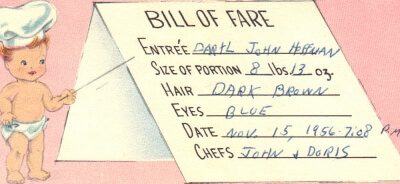
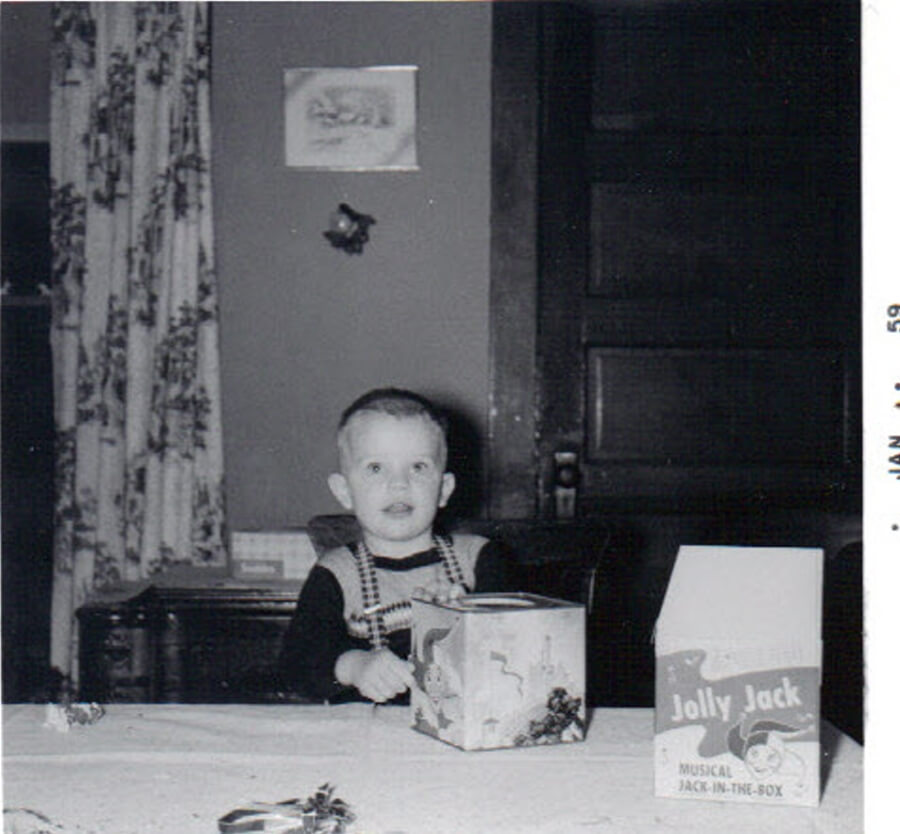
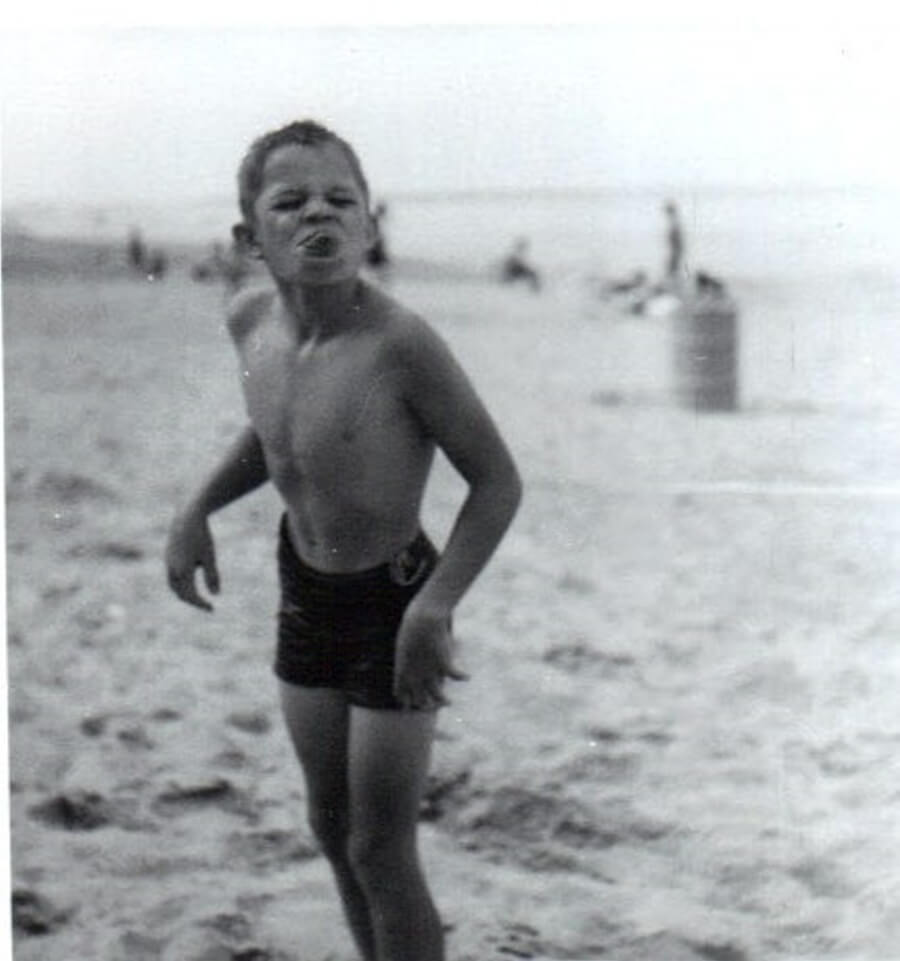
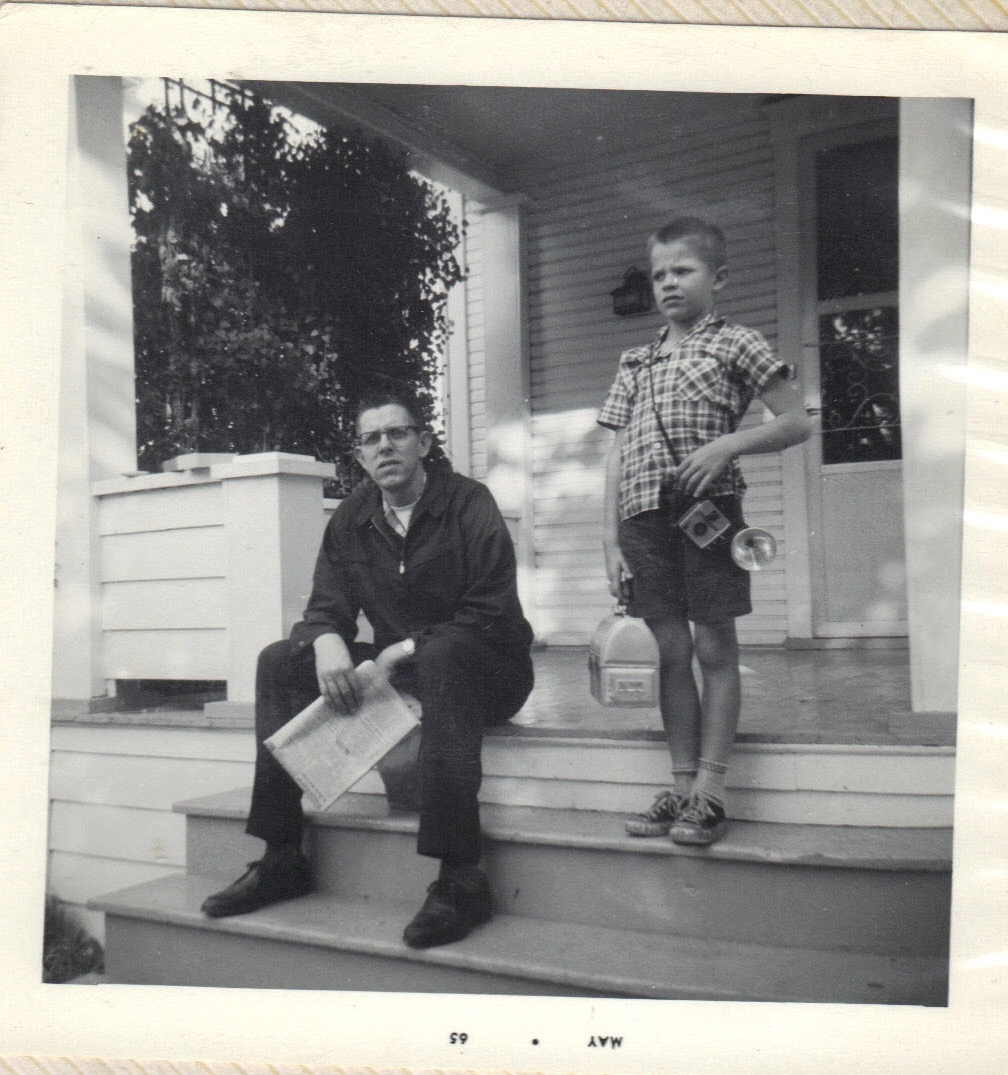
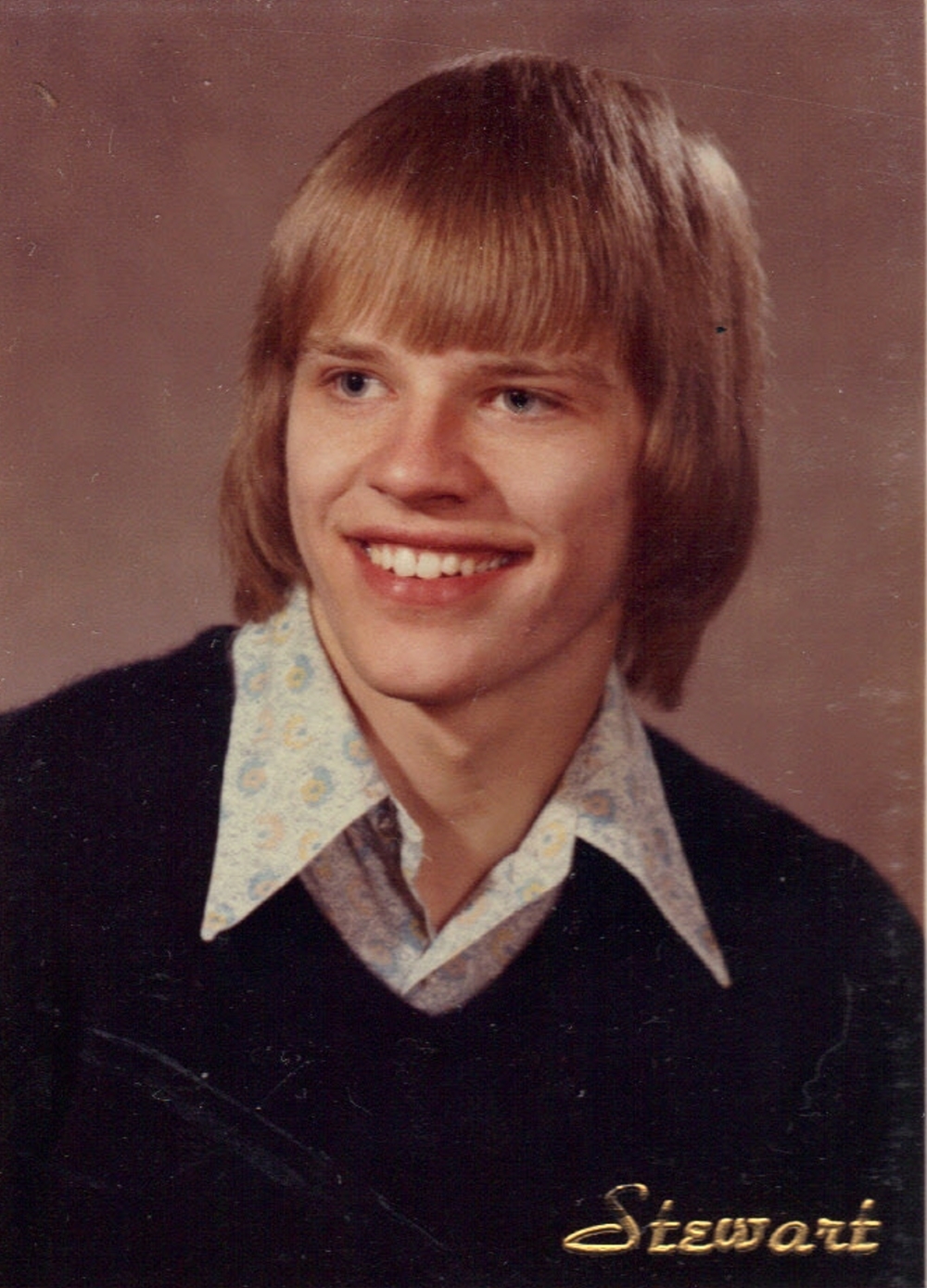

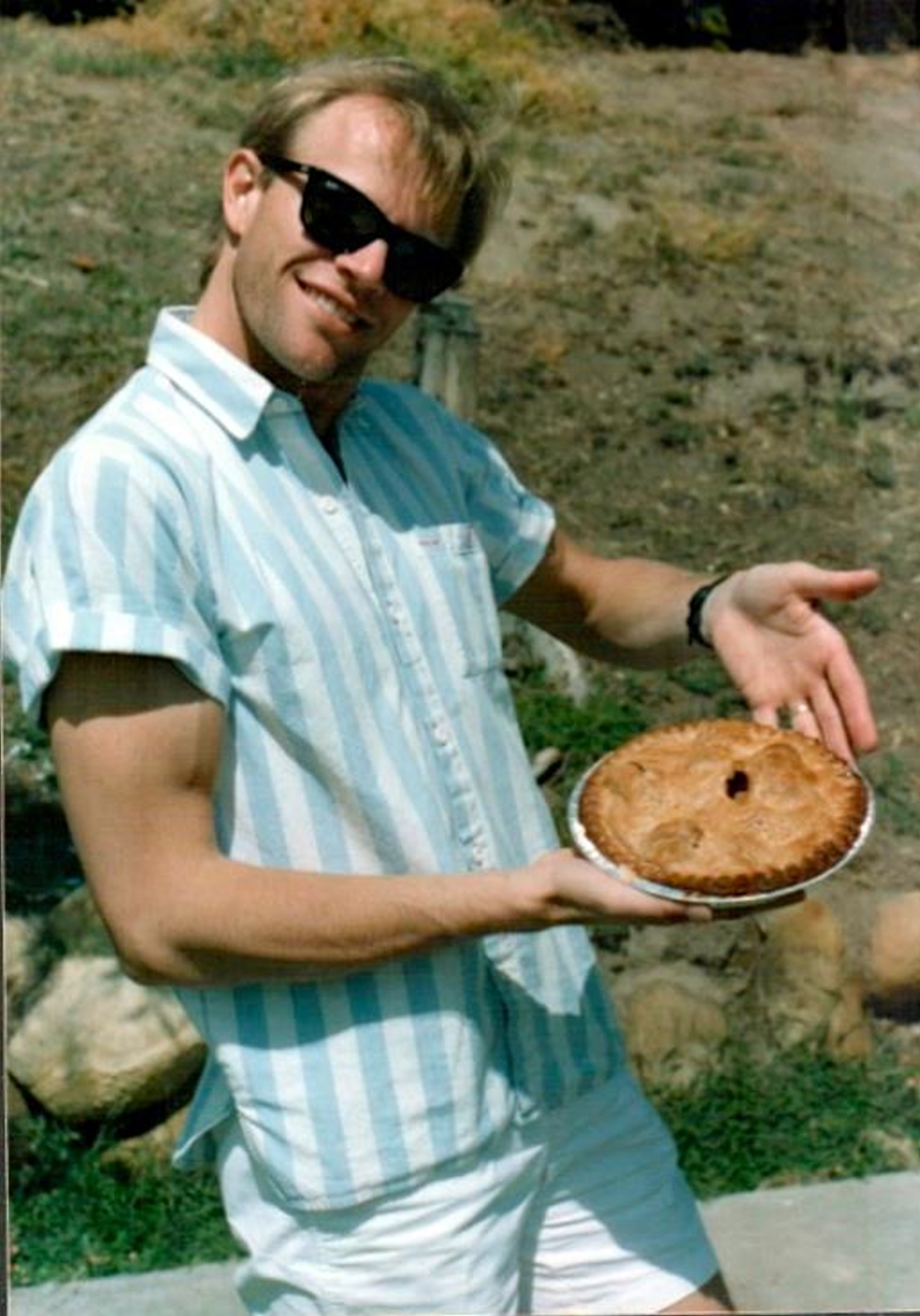
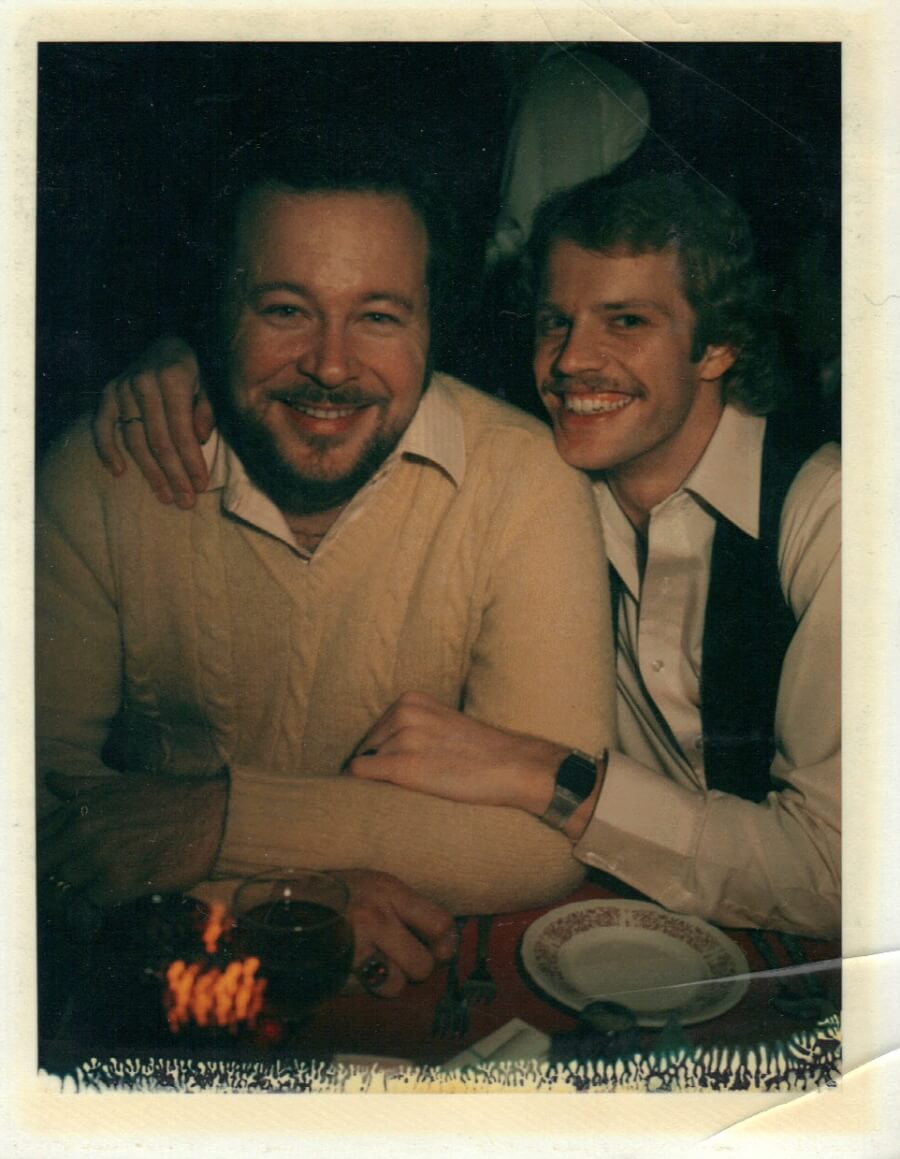
Leave a Reply